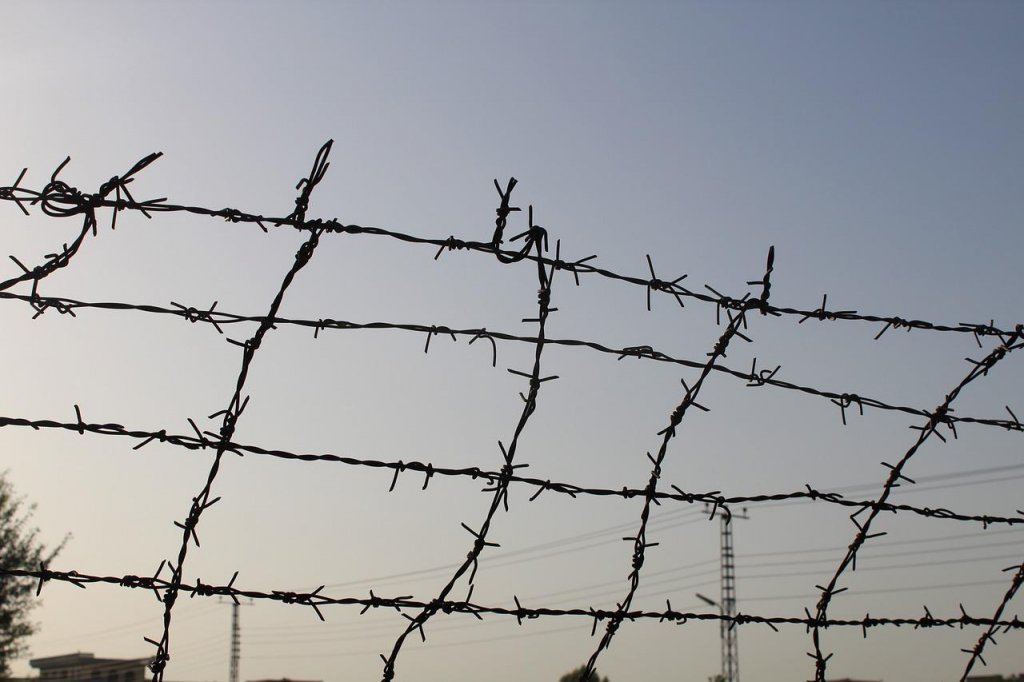Pakistan at 75: Security at the Center Stage- Sitara Noor

Since its
inception, Pakistan has been facing a plethora of internal and external challenges
that are undermining its security. Even after 75 years of independence, the
unsettling global and regional environment marked by great power rivalry,
economic competition and a hostile neighbourhood are directly affecting
Pakistan’s security. In addition, numerous domestic challenges such as
deteriorating internal security, depleting economy, and political instability affect
the country’s ability to effectively deal with these challenges. Despite being
located at the confluence of three important regions of the world i.e., South,
East and West Asia, Pakistan could not utilize its full geographical potential
as it remained busy confronting immediate and long-term security challenges. While
the list is long, the following challenges namely the great power rivalry, unsettled neighbourhood, and resurging terrorism are of immediate concern with greater bearing on Pakistan’s
future in near and long term.
Caught in the Crossfire of Great Power Rivalry
On the
global front, one of the biggest concerns for Pakistan is to balance its relations with both the United States and
China. After an on-again, off-again relationship with the US under President
Trump, the Pak-US relations plummeted to their lowest after the latter’s chaotic withdrawal from Afghanistan. The schisms widened over
the US’s alleged involvement in the toppling of the Pakistan Tehreek-e-Insaf (PTI,
Pakistan Movement for Justice) government as claimed by the outgoing Prime
Minister Imran Khan. Although the new Pakistan Muslim League Nawaz (PMLN)
government under Prime Minister Shahbaz Sharif has vowed to improve Pakistan’s relationship
with the US and expand
cooperation with China, any move in
that direction is invariably affected by the growing US-China rivalry in the
region at large.
While
Pakistan needs US support to keep its economy afloat through the International Monetary
Fund (IMF) loans, it cannot afford to do so at the cost of its strategic military,
economic and technical relationship with China. After having completed the
harvest phase of the much-celebrated $62
billion worth China-Pakistan Economic Corridor
(CPEC) – the flagship project of the One Belt One Road (OBOR) initiative,
Islamabad is required to prioritise and gear toward the crucial second phase of
the project that will determine its success through rapid industrialization and
regional connectivity. To date, Pakistan has managed to insulate its strategic
and economic cooperation with China from US interference, however, with growing
US-China rivalry, that space is fast reducing, forcing Islamabad to make some
stark and difficult choices. The perceived slowdown of CPEC projects has raised concerns not only
about Pakistan’s capacity to manage the program but also about its ability to
sustain growing external pressure. With War in Ukraine, Pakistan is facing
additional pressure to abandon its neutral position. Walking on that tight
rope and not falling victim to the great power rivalry is going to be the
biggest concern for Islamabad in the near and long-term future.
The Eastern Question: Crises with India under Nuclear
Overhang
The
US-China rivalry is negatively affecting the already volatile neighbourhood as
well. India’s projection by the US as the net security provider in the
Indo-Pacific region against China has further strained the relationship between
Pakistan and India. The ongoing contestation over the disputed territory of
Jammu and Kashmir has led to many serious crises under the nuclear overhang.
Under the Indo-US strategic partnership, India has acquired military equipment
of around USD 20 billion from
Washington in the past 15 years. Additionally, India has signed several defence
cooperation agreements including the Basic Exchange and Cooperation Agreement
(BECA) for geospatial cooperation (2020), the Communications Compatibility and
Security Agreement (2018) and the Logistics Exchange Memorandum of Agreement
(2016). These agreements will provide India with a significant edge over Pakistan in its geospatial navigation and
intelligence capabilities.
India is pursuing a comprehensive military modernisation
programme including air, ground, naval and strategic nuclear forces e.g. India has
acquired multi-role
Rafale fighter jets from France and also
managed to acquire the S-400 air
defence system from Russia, successfully bypassing the US sanctions. While India justifies its massive
arms build-up against the Chinese threat, most of these technologies are going
to be used against Pakistan in any future conflict. To offset India’s arms buildup, Pakistan
is enhancing some existing options such as up gradation of JF-17 Thunder,
Block-III and further development of multiple independently targetable reentry
vehicle (MIRV) capability. Pakistan air force has also inducted J-10C fighter jets
that will enhance Pakistan’s conventional combat capability against India,
thereby strengthening mutual vulnerability.
Apart from these defence procurements, India is ostensibly changing its nuclear posture by steadily doing away with the “No
First Use” (NFU) pledge and flirting with the idea of pre-emptive counterforce
strikes. These developments are undermining fragile strategic stability in
South Asia and require serious attention. While a backdoor channel with India purportedly remains active, any major
breakthrough is seemingly impossible at the moment, given the obstinate nature
of the current BJP leadership in India.
Afghan Crisis and Resurging Terrorism
The
aggravating security situation in Afghanistan under the Taliban is directly
affecting Pakistan’s stability. Pakistan has been seeking greater international
engagement with Afghanistan even at the risk of being labelled a Taliban
sympathiser, mainly because any spill over is likely to adversely affect
Pakistan’s security. According to the UNHCR estimates, there are around 1.44 million registered Afghan refugees already residing in Pakistan
and Islamabad has expressed its inability to host more. However, as a result of the
worsening humanitarian crisis, there is
a perennial risk of more Afghan refugees coming to Pakistan in future in search
of food and safety, despite a relative calm at the moment.
Taliban’s
control over Afghanistan has also aggravated Pakistan’s terrorism problem. It
has revitalised domestic terror organisations such as the Tehreek Taliban
Pakistan (TTP) and other transnational terror outfits such as the Islamic State
Khorasan Province (ISKP). According to Pakistan Institute for Peace Studies
(PIPS) report, there is up to 42 per cent increase in terrorist attacks in
2021 from the previous year with an almost 40 %
increase in fatalities of security personnel.
The
Taliban’s inability or complacency to control the Tehreek-Taliban Pakistan
(TTP) operations from Afghan soil has already become a sore point in the
bilateral relationship. Despite the Taliban’s repeated assurance to not allow
Afghan soil to be used against Pakistan, TTP has continued its attack on
Pakistani citizens and security forces with impunity, leading to a major
escalation as Pakistan resorted to cross-border aerial
strikes in the Khost and Kunar provinces of
Afghanistan. The Taliban’s ongoing assistance in brokering a ceasefire between
Pakistan and TTP is unlikely to resolve the problem. The Taliban are not going
to give up on the TTP completely because of their cultural affinity,
their common take on the Durand line issue and most importantly to continue to use them as
leverage against Pakistan.
Conclusion
In order
to deal with these enduring challenges, Pakistan must make independent and
smart decisions through astute diplomacy. As a sovereign country, Pakistan must
hold its ground and should not succumb to the pressure of taking sides in
regional competitions. At the same time, while strengthening its defence
posture, Pakistan must continue to work for peaceful resolution of all issues
with its neighbours.
Notwithstanding
the challenges, Pakistan’s geographical location offers great opportunities as
well. The same geography can be used for regional connectivity. However, any
potential economic activity is dependent on realising Pakistan’s much-touted
shift to geo-economics as outlined in the latest National Security Policy. That
shift will require political acumen, a sustained diplomatic effort for regional
peace.
Furthermore,
in order to deal with any external challenge, Pakistan must strengthen itself
from within. The government must prioritise economic revival through overcoming
energy shortfall, curbing corruption, improving governance through broad-based
and inclusive policies and working on non-traditional security aspects such as
human security, climate change and food security etc. This will not only
add strength to the external outlook but will also deny space to an insider-outsider
collusion to undermine Pakistan’s security.

Sitara Noor, Centre for Aerospace & Security Studies (CASS)
Sitara Noor is a Senior Researcher at the Centre for Aerospace & Security Studies (CASS), Islamabad, Pakistan since 2019. Previously, Ms Noor was a Research Fellow at the Vienna Centre for Disarmament and Non-Proliferation (VCDNP) in Vienna, Austria (2016-17). She also worked at the Pakistan Nuclear Regulatory Authority as an International Relations Analyst (2008-15). She has served as a faculty member at the National University of Modern Languages for two years. She was also a visiting faculty at the National University of Science and Technology (NUST), Quaid-i-Azam University, the Foreign Services Academy of Pakistan, and the Information Services Academy of Pakistan. She was also a South Asian Voices Visiting Fellow at the Stimson Centre, Washington DC (2019-20), Visiting Fellow at Sandia National labs (2019 & 2013) and James Martin Center for Nonproliferation, Monterey, California (2013). She is serving as the Country Coordinator for the University of Gothenburg project “Variety of Democracy” since 2012. She regularly writes on nuclear and security issues at various national and international platforms including Aljazeera, The News, The National Interest, The Diplomat, South Asian Voices/ Stimson Center among others.
To cite this work : Sitara Noor “Pakistan at 75: Security at the Center Stage”, Panorama, Online , 18 August 2022, https://www.uikpanorama.com/blog/2022/08/18/pak-3/
Copyright@UIKPanorama. All on-line and print rights reserved. Opinions expressed in works published by the Panorama belongs to the authors alone unless otherwise stated, and do not imply endorsement by the IRCT, Global Academy, or the Editors/Editorial Board of Panorama.